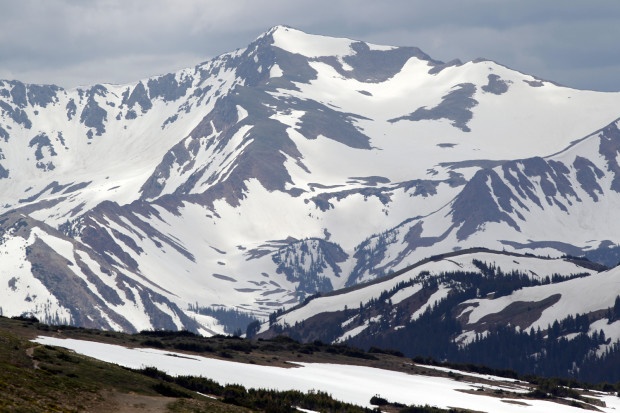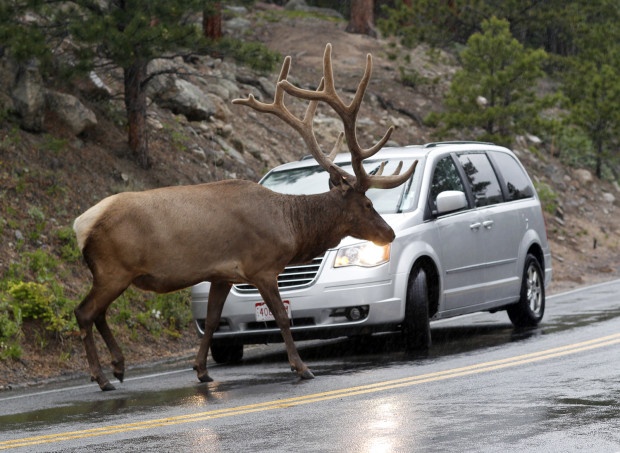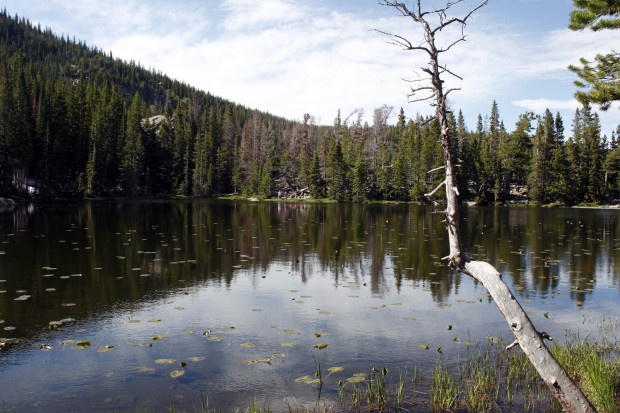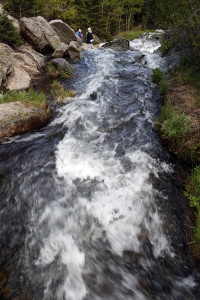We have much more to do and your continued support is needed now more than ever.
First Flooding, Now an Unnatural Disaster — the Shutdown — Plagues Rocky Mountain National Park

An unnatural disaster
The government shutdown that has furloughed nearly 1 million federal employees and disrupted services and programs used by millions of Americans has also closed our national parks, wildlife refuges and other public sites. This was never going to be a normal fall season for Estes Park, about 70 miles northwest of Denver. The main highways to the town and park were damaged beyond use by the floods. That meant people out to satisfy their yearly fix of seeing the shimmering gold aspen leaves and hearing the bugling of bull elk looking for mates would have to take a longer, more indirect route.
Which I was determined to do. I took a couple vacation days so I could make the trek. My husband and I wanted to go hiking and look for wildlife — and support a community struggling to right itself after getting knocked down.
Then came the shutdown. Rocky Mountain National Park was forced to turn away visitors, so we stayed home. Similar scenes are playing out across the country.

“It’s not right,” Oliver told the Post. “These parks belong to the people. I don’t think they know what they’re doing, all the people they’re hurting directly and indirectly.”
There’s no way for someone else to sum up the personal loss for the Missouri man. However, the National Park Service has put a number to the monetary loss of closing our national parks — $76 million each day. Communities like Estes Park are missing out on the money park visitors spend in restaurants, stores, at gas stations and hotels. Neighboring Wyoming, home to Yellowstone and Grand Teton national parks, will lose nearly $3.4 million daily because of the park closures, according to an analysis by Climate Progress. Colorado could lose $2 million a day.

Piecemeal solutions

What about the wildlife refuges? What about the failure to fully fund the Land and Water Conservation Fund? What about the hunters and anglers who can’t hunt and fish on public lands because of the shutdown? A report by the U.S. Fish and Wildlife Service says about 90 million Americans 16 and older hunted, fished and participated in other wildlife-related recreation in 2011, spending almost $145 billion.
Whit Fosburgh, president and CEO of the Theodore Roosevelt Conservation Partnership, notes that numerous federal agencies oversee conservation, including the Department of Commerce, the National Forest Service and the Bureau of Land Management.
“Cherry-picking among agencies ignores the broader problem of how this shutdown is negatively impacting sportsmen across the country,” Fosburgh said in a statement Wednesday.
Focusing on such high-profile sites as the national parks is an empty gesture. It’s time for Congress to end this self-inflicted, unnatural disaster.
![]() Tell your member of Congress that they need to pass a funding bill so that vital wildlife conservation, environmental protection and many other vital services can continue.
Tell your member of Congress that they need to pass a funding bill so that vital wildlife conservation, environmental protection and many other vital services can continue.






















